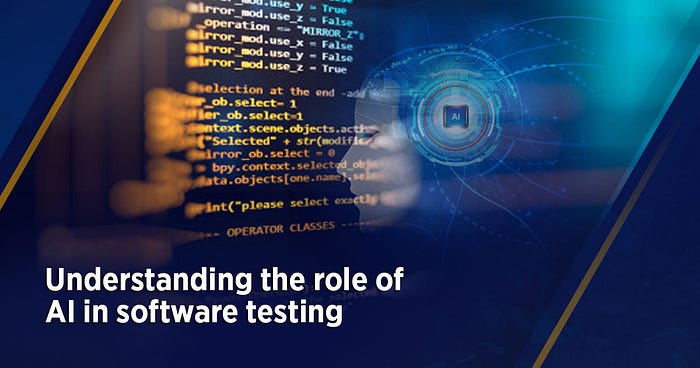AI-based
automation testing helps the testing processes to achieve a slew of
benefits. These include automated building and maintenance of test
suites, predictive self-healing, visual validation, and cloud-based
virtualization.
The software development lifecycle is
becoming more complex and tech-driven to meet the requirements of the
quick release of quality software applications. Since software testing
is a critical component of the whole process, it needs to be made
faster, smarter, and better. The best way to achieve the same is to
employ a smart AI testing strategy wherein QA specialists
can move towards precision testing on a continuous basis. By leveraging
machine learning, problem-solving, and reasoning, AI-based automation
testing can reduce the quantum of tedious and mundane tasks in the SDLC.
The key role of AI-driven testing is in reducing the direct involvement
of QA specialists and developers in conducting routine activities.
Normal test frameworks cannot analyze and decide the type of tests to be
conducted, leaving it to the discretion of the testers.
It
results in the testers running all test cases or a few of the scheduled
ones thereby leaving testing at a sub-optimal level. An AI testing
framework, on the other hand, can analyze metrics such as test status,
code coverage, and changes, among others to decide on the type of tests
to be run. In other words, Artificial Intelligence can carry out
decision making without the help of the developer or tester. The best
examples of using AI in digital technology are the smart chatbots or
voice recognition software like Siri (Apple) and Alexa (Amazon). These
two are routinely used by people to browse the web and look for
information, find directions, book appointments, and manage other
activities. Siri and Alexa leverage machine learning algorithms to
analyze past data patterns to predict customers’ requests, understand
their habits and preferences, and make recommendations. Alexa can even
connect with the smart thermostat called Nest to automatically adjust
the room temperature by using the behavioral data of the homeowner.
How can AI-based testing impact the overall testing scenario
The
need to provide the best quality products quickly into the hands of the
consumers has driven software enterprises to adopt new tools and
practices. Robotics Process Automation (RPA) using AI is shaping
business priorities to achieve new thresholds of quality, speed, and
cost-effectiveness. As test automation remains an underutilized practice
in most enterprises, AI-based automation testing can truly fulfill the
testing requirements delineated in Agile and DevOps methodologies.
Building test suites: AI
in software testing can simulate the behavioral patterns of users based
on geography and devices, and use them as inputs to build smart test
suites. Further, it can analyze data from the social media interactions
of users, mine defects, and make intelligent decisions on test coverage
and optimization of test suites, rapidly and consistently.
Maintenance of test tools: The
task of maintaining test cases is tedious because of the complex
architecture and workflows of the test cases. Also, maintaining and
executing automated testing tools still require manual intervention to
some extent, which can be eliminated through AI automation testing. The
time and effort saved by the testers can be put to good use by focusing
more on exploratory testing.
Predictive self-healing: Changes
made to software applications are a recurring feature, which often
results in the breaking of UI tests as objects are not found. This is a
major challenge faced by QA specialists who not only have to conduct
tests but maintain the test suites and object repositories as well. An
AI testing framework can dynamically update the test suites when the
software application undergoes changes. Hence, QA specialists can cut
down their time and effort on maintaining the test suites.
Visual validation: A
robust AI testing strategy involving pattern and image recognition can
detect visual bugs in the software application. This is done by ensuring
the visual elements appear and function as expected. In fact, AI can
identify and analyze the dynamic UI controls on a pixel level.
Cloud-based virtualization: Any
software application needs to be tested on a plethora of devices, their
screen sizes and resolution, operating systems and their versions, and
browsers and their versions, among others. These have led to increasing
the complexity of test environments wherein testing teams have to filter
and execute UI testing. No wonder, managing such test environments has
become cumbersome, time-consuming, and expensive. The Artificial
Intelligence led testing can analyze historical test results and user
data to help teams virtualize the specific test environments on the
cloud.
Conclusion
With the rising complexities of software applications, device platforms, and test environments, AI test automation
is the way forward for enterprises to stay competitive. It helps QA
specialists to achieve quality control, stability, maintainability, and
scalability of the test suites.

